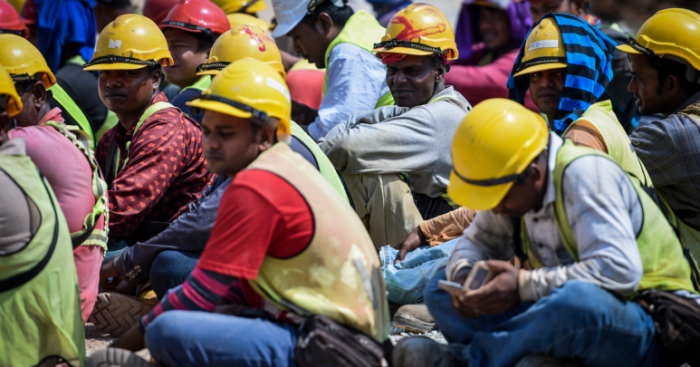Ramasamy: Shifting of mindset, ethics hardly sufficient to address issue of forced labour
savemalaysia
Publish date: Wed, 25 May 2022, 01:20 PM
THE shift of mindset and practices is not enough to address the issue of forced labour in Malaysia, said Penang deputy chief minister II Dr P. Ramasamy.
He was responding to a statement made by Malaysia HR Forum and Social Compliance Malaysia Chapter co-founder Arulkumar Singaraveloo who yesterday said that a switch in workday pattern from the current two-shift model to a three-shift model is one of the steps that manufacturers can take to eliminate forced labour practices.
Arulkumar also said that the switch in workday pattern can also attract more local workers while decreasing their reliance on foreign labour.
“The Malaysia HR Forum is under the mistaken impression that the phenomenon of forced labour can be eradicated by shifting mindsets and the adoption of ethical practices,” Ramasamy commented.
“It has been suggested in the one-day workshop organised by the Malaysia HR Forum on the topic of ‘Prevention and Elimination of Forced Labour’ that changing the nature of work based on a three-day shift might reduce the overtime costs of employers, thereby mitigating going against labour laws.
“According to the Malaysia HR Forum forced labour can also be prevented if employers adopt ethical practices in recruitment and employment.”
Calling the HR Forum’s perspective on the issue of forced labour “narrow”, Ramasamy insisted that compliance with the inadequate labour laws will not eliminate forced labour.
“The inadequate laws are hardly enforced in the country where employers have a major say in terms of brining an end to labour enslavement,” he noted.
“So, when laws are inadequate and their enforcement miserable, how can they be counted on to reduce or eliminate forced labour?”
Proposed measures hardly enough to address issue
According to Ramasamy tweaking the industrial system in shifting the work model or introducing ethical measures in recruitment are hardly sufficient to address the widespread use of forced labour.
“Forced labour exists not because laws are not complied with or because of the inflexibility in recruitment methods devoid of ethics,” he remarked.
“The measures [proposed by the Malaysia HR Forum] assume naively that forced labour is an aberration that can be gotten rid of by seeking compliance to the laws and this is the most superficial and naïve understanding of forced labour.”
Ramasamy further pointed out that forced labour is not something that can be eradicated by emphasis on legal compliance or ethical considerations in labour recruitment.
“These measures might mitigate the worst forms of forced labour but they are not sufficient to systematically address the phenomenon which is deep-rooted in the structure of the economic system,” he justified.
“Forced labour exists because there is no recognition of the labour theory of value. The particular form of labour is used under repressed social conditions for the extraction of raw materials or the production of cheap goods and other than the maximum use of labour under repressed conditions employers have little or no use for the thinking power of labour.”
In this case, labour is just a “cog in the machine” as workers are simply required to perform repetitive chores for a period of time, he added.
“This is unlike establishments that are involved in the production of goods that depend on the value of labour or, in other words, labour power translates to high skills and competence,” Ramasamy explained.
“If employers had recognised the value of labour in terms of skills and competence forced labour might have disappeared.”
Ramasamy went on to note that forced labour can only be reduced in the long run by the deepening of the economy predicated on the acquirement of education, skills and talent by the labour force.
“Changing the attitude of employers through the adoption of ethical practices is important but not significant to alter the structural conditions of forced labour.
“Forced labour can only be prevented if the economy moves in the direction where labour is recognised for what they possess and is not repressed to produce goods under terrible working and living conditions,” he added. – May 25, 2022
https://focusmalaysia.my/ramasamy-shifting-of-mindset-ethics-hardly-sufficient-to-address-issue-of-forced-labour/
More articles on save malaysia!
Created by savemalaysia | Apr 26, 2024
Created by savemalaysia | Apr 26, 2024
Created by savemalaysia | Apr 26, 2024
Created by savemalaysia | Apr 26, 2024
Created by savemalaysia | Apr 26, 2024
Created by savemalaysia | Apr 26, 2024
Created by savemalaysia | Apr 26, 2024
Created by savemalaysia | Apr 26, 2024
Created by savemalaysia | Apr 26, 2024

















